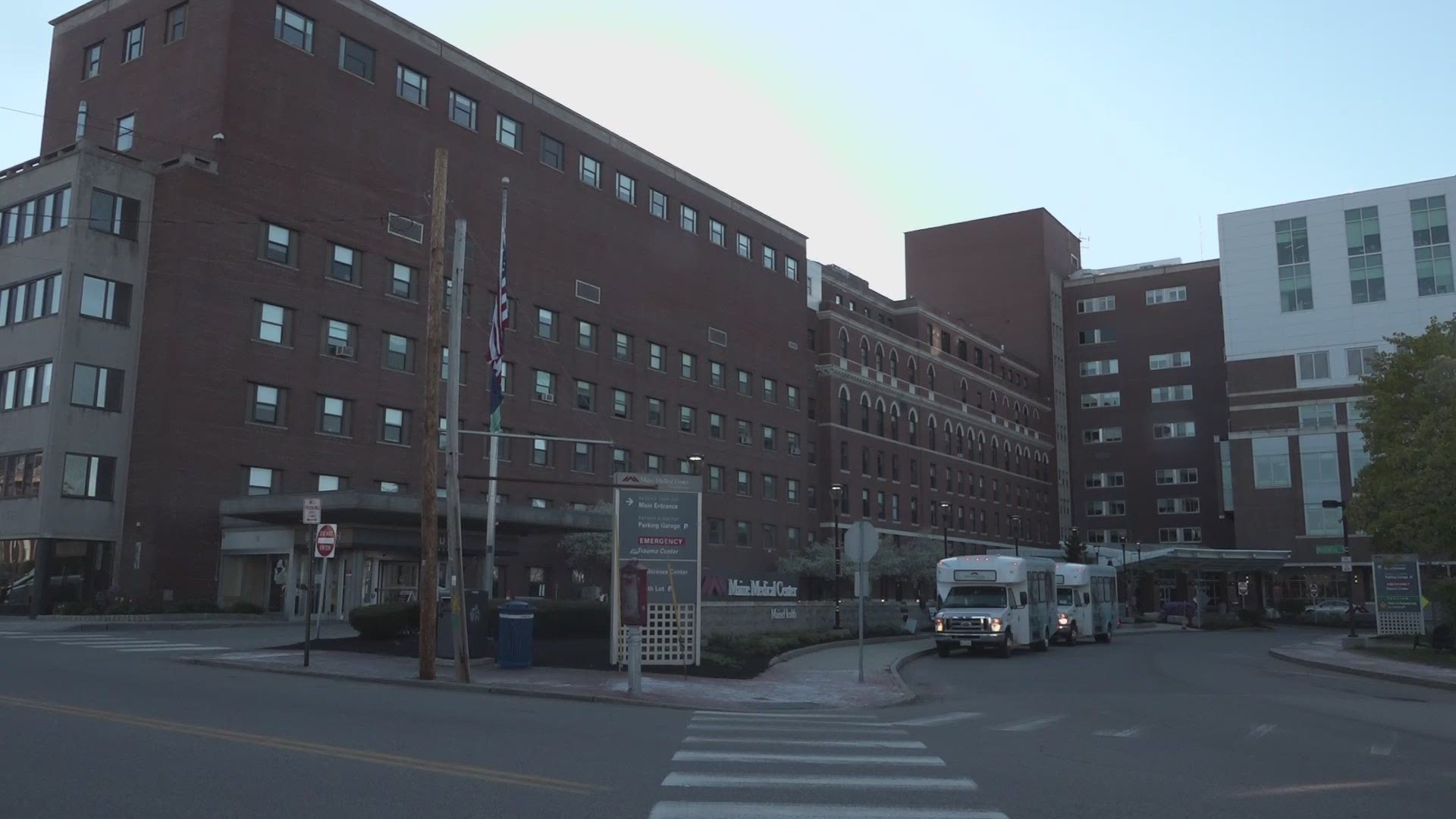PORTLAND, Maine — If anything, the pandemic has put into perspective how important health care workers are to keeping our communities afloat, healthy, and safe. For years, a shortage of doctors has been a problem in Maine and just in general—but an ongoing partnership in our state is working to address that need. As a result, more than a dozen new residents will be coming to Maine Medical Center this summer.
The Maine Track program with Maine Medical Center and Tufts University School of Medicine has been going on for 13 years. On Saturday, May 1, a virtual celebration took place to recognize the ninth cohort of Maine Track students. With this year's group, 316 physicians will have graduated from the program since it began. As of December 2020, 40 Maine Track graduates are practicing medicine in Maine. Of a Maine Track class of 36 this year, 13 of them are doing residencies at Maine Medical Center— including four others from the Boston-based program.
"Maine was always on my radar. It's my home," Bridget Olsen, an incoming surgical resident at Maine Medical Center, explained to NEWS CENTER Maine about why the Maine Track program appealed to her. Olsen grew up in southern Maine and attended Colby College, so staying in the Pine Tree State was a big draw.
The type of medicine she and her classmates have learned was a big reason too. Olsen says some Maine Track students were able to go to a more rural hospital during their third year to get exposure to a different type of care—where hospitals may not have a doctor for specialty roles, so they require very well-trained primary care physicians. She worked at Redington-Fairview General Hospital in Skowhegan and says the experience was enlightening.
"Maine is super dispersed, and it's hard to deliver care to everyone," Olsen said about the need for doctors in our state.
Spencer Scott is another Maine Track student who will also be calling Maine "home" again when he starts as a general surgery resident at Maine Medical Center in July. Scott's path is a bit unique—he worked in journalism for a handful of years after college. While helping with the production of medical docudramas in Boston for ABC, Scott was inspired by everything he witnessed and decided to take a chance without hesitating.
"I think if I overthought it, I might've gotten cold feet, or gotten sort of worried and not dove in the way I did," Scott admitted. He spent his third and fourth years of medical school at Maine Medical Center. He says he's happy to be continuing there for the next five years, and "hopefully beyond."
"I just always missed Maine, and I kind of always thought, 'I hope one day I'll be able to come back to the state that has always felt like home,'" Scott explained. "I think has always been where my heart is."
RELATED: Maine man defies odds relearning how to talk, walk, run, and bike after traumatic brain injury
Jo Linder is the Maine Track program's assistant dean for students. She says the program is based in community education. By stationing some students at more rural hospitals, physicians have more reason to teach in those areas. The goal of the program from the beginning has been to attract more students from inside and outside of Maine to the medical field.
"That was one of our primary goals -- was really to increase the number of young people aspiring to become doctors," Linder said.
One of the MaineHealth locations that participates is Stephens Memorial Hospital in Norway, where Gregory J. Hardy is chief medical offer.
"Local primary care (and) adult primary care practices have hundreds (of people) on their waiting list at times, just to get into the practice," Hardy expressed about the need, which was highlighted during the pandemic, with a shortage of health care workers.
Hardy says another big factor in addressing rural health care is adequate funding for program like Doctors for Maine's Future, a scholarship that helps some students enrolled in a Maine medical school pay off their student debt. The hope is that having less of a financial burden will make working in a more rural area more appealing (and feasible) for up-and-coming doctors. Ultimately, Hardy says communities need primary care practitioners because if people don't get the care they need, they will get sicker over time—and that costs money.
"We've noticed that shortage for quite some time," Hardy said.
The 2021 class of Maine Track graduates is a bright spot for the future.
"Every student that I have worked with, that I've come to know in the Maine Track, I would be happy to have them take care of me," Linder smiled.
"I think in every aspect of life, you should look to find the people that you just want to spend time with. And being able to be with this group of students in the Maine Track has just been phenomenal," Olsen noted.
A virtual graduation ceremony is taking place on May 23. You can watch Saturday's celebration here.

